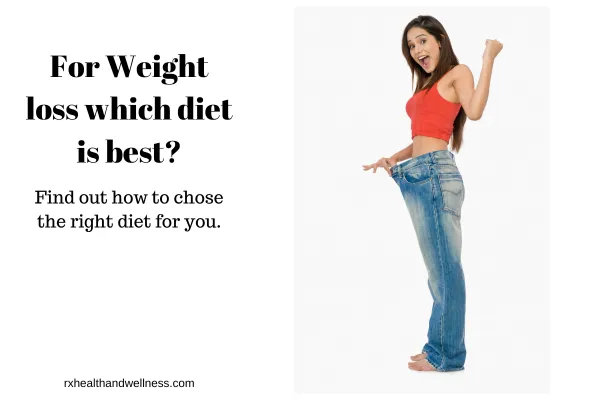
For Weight Loss, Which Diet Is Best?
For Weight Loss, Which Diet Is Best?
Trying to lose weight? You’re not alone. With so many diets to choose from, it’s easy to feel overwhelmed. The truth is—there’s no one-size-fits-all answer. The best diet is the one that fits your medical needs, lifestyle, and long-term goals.
If you’re living with pre-diabetes, type 2 diabetes, high blood pressure, or heart disease, your doctor may recommend weight loss as part of your treatment plan.
But even beyond health reasons, many of us want to feel better, have more energy, and feel good in our skin.
Most Popular Diets for Weight Loss
The most common diet approaches include:
Low-carb diets
Low-fat diets
Calorie-controlled diets
Each has pros and cons—and success depends on more than just willpower.
I’ve personally tried many diets over the years. I understand how frustrating it can be to lose and regain weight, or to feel like nothing works. Many of my patients ask me: "Which diet is best?"
Which Diet Is Best?
Here’s the truth based on science and years of working with patients:
✅ The best diet is one you can stick with long term
✅ It supports your health, not just short-term weight loss
✅ It fits your life—not the other way around
Before starting any diet, talk with your healthcare provider. This is especially important if you have chronic conditions.
Questions to Ask When Choosing a Diet
Before picking a plan, consider:
Does it include whole, unprocessed foods you enjoy?
Can you find these foods at your local store?
Does it include all food groups (fruits, veggies, grains, lean protein, nuts, healthy fats)?
Can you enjoy it for life—not just a few weeks?
Does it fit your budget and cooking habits?
Does it meet your nutrition needs safely?
Does it include movement or exercise?
Low-Carb Diets
Low-carb diets like keto, Atkins, or paleo restrict carbohydrate intake to stabilize blood sugar and reduce insulin resistance. These plans may help reduce appetite, improve metabolic markers, and support weight loss.
For people with type 2 diabetes or chronic inflammation, low-carb diets may help improve insulin sensitivity.
Caution: Many low-carb plans are hard to maintain long term. They also may lack fiber or essential nutrients if not carefully planned.
Use low-carb diets as a tool—but not a forever solution unless under medical supervision.
Low-Fat Diets
Low-fat diets focus on limiting fat intake while increasing plant-based, high-fiber foods. Popular examples include:
DASH diet
Ornish diet
Mediterranean diet
These diets are associated with:
Lower blood pressure
Improved cholesterol
Reduced heart disease risk
They are easier to maintain long-term and emphasize whole foods.
Calorie-Controlled Diets
These diets focus on eating fewer calories than your body burns. You may track calories or use a point-based system.
Popular options include:
Weight Watchers (WW)
MyFitnessPal tracking
Slimming World
These programs can help if you like structure or accountability. But beware: over-restricting calories can backfire by slowing metabolism or leading to binge eating.
Start by calculating your daily calorie needs. Then create a small deficit to lose 1–2 lbs per week.
Key Takeaways
Focus on health, not just weight.
Choose a plan that supports nutritional balance and sustainability.
Use real food, not just shakes or supplements.
Track your progress—not just weight but energy, mood, waist size, and blood markers.
Try intermittent fasting or time-restricted eating if it fits your lifestyle. Many find this helpful for insulin resistance and hunger control.
→ Learn more about intermittent fasting
Movement Matters
Being active is essential for long-term weight loss and health.
Start with walking or light stretching
Work up to 30+ minutes per day, 5 days per week
Include both cardio and resistance training
Exercise boosts metabolism, improves insulin sensitivity, and enhances mood.
Healthy Habits > Quick Fixes
No diet works without habit change. Create habits that support your goals:
Log your meals
Track your weight and waist-to-hip ratio
Cook more meals at home
Practice mindful eating
Get enough sleep
Reduce stress
Need help building better habits? Start here: Where to start getting healthy when you have chronic disease
Think Long Term
The best diet is one that becomes part of your life. It’s not about perfection—it’s about progress.
One of the top-rated, research-backed diets for both weight loss and heart health is the Mediterranean diet. It’s rich in vegetables, whole grains, lean proteins, healthy fats, and simple meals.
As author Michael Pollan wisely said:
“Eat food. Not too much. Mostly plants.”
— Michael Pollan, In Defense of Food
